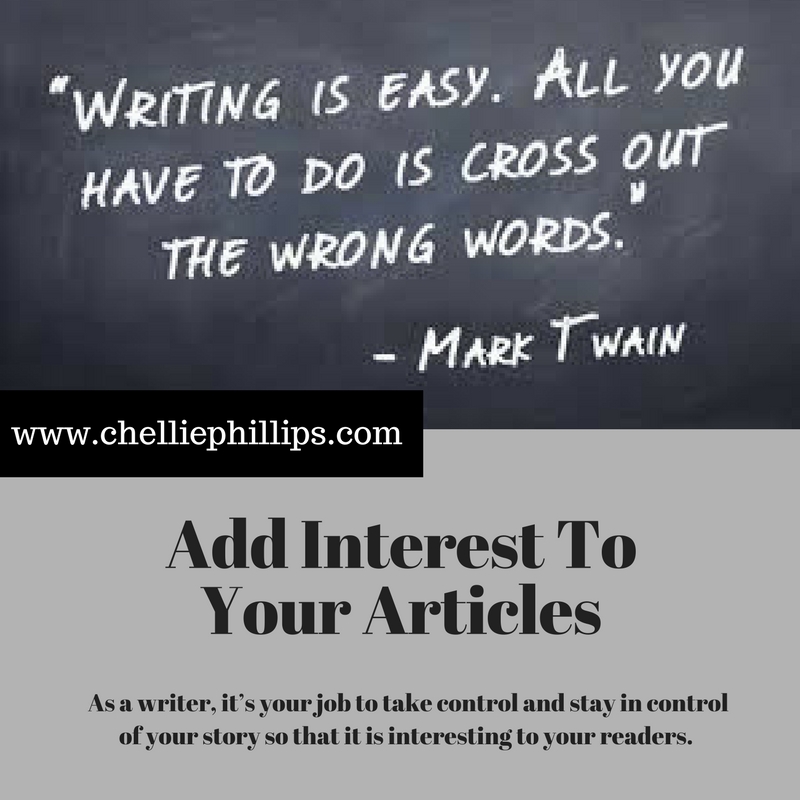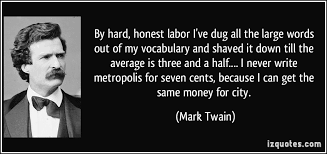
As a writer, it’s your job to take control and stay in control of your story so that it is interesting to your readers.
You need to develop a strong narrative voice. There are two primary voices – first person and third person. In first person, the narrator is speaking directly to the reader. It’s about a personal experience. It uses the pronouns I, we, and our throughout. In third person, the narrator is telling the story and can add a lot of additional information than the main character. However, there are 22 types of narrative voice. So be careful not to confuse the reader by switching between them inside your story.
Avoid a lot of jargon, clichés and buzzwords.
Keep the article moving forward by working on pace and flow. Do this through a supply of fresh and new facts that are introduced.
Use quotes. However, remember that to many can take away from their effectiveness. Quotes add color and detail to stories. They reveal interesting things about people. They help break up long passages of text. They are a great way to emphasize important parts and show examples.
Make sure you always provide attribution with quotes. Use said 90 percent of the time. 10 percent of the time you can use told, explained. Amateurs use smiled, relayed, etc.
Avoid long quotes. And quote more than one person when possible. It adds credibility to the story.
Don’t rely on chronological order to tell your story. It’s predictable and bland. Start with the high point, then work backwards showing how they arrived there.
The Webster’s Third New International Dictionary contains some 470,000 words. However, if you look at all the words that have multiple meanings, some say there could be up to 1 million words used in the English language. That gives you a lot of choices. So, choose active verbs and powerful nouns. Avoid is or was when possible. Omit unnecessary words. Keep your writing tight.

But just in case you’re tempted to open the thesaurus, remember the golden rule of writing- never use a long word when a short one will do. To keep a reader’s interest, you need to write the way people talk. Before you write it down, say it out loud. If you wouldn’t use it in a conversation, you shouldn’t use it in your article.
Mark Twain might have said it best. “I never write metropolis for 7 cents because I can get the same price for city. I never write policeman because I can get the same price for cop.”
Finally, the best way to be a better writer is to read. Read all types of stories, novels, and articles.
What if you could get an emergency culture alert?
What if we could get a warning, or emergency alert, when culture starts to decline or go bad in our workplaces. Do you know the warning signs? Read on to find out.


